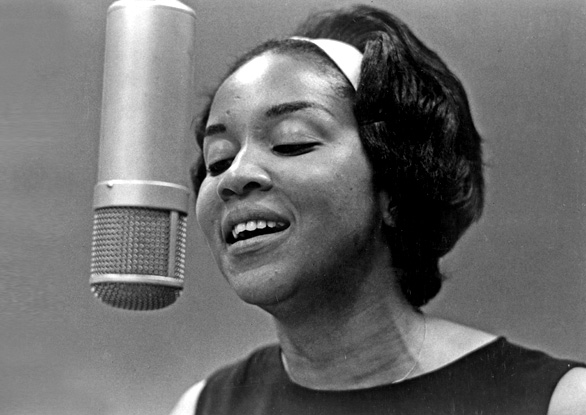|
Reviews of Recent Independent, Foreign, & Documentary Films in Theaters and DVD/Home Video

REJOICE AND SHOUT The prologue of Rejoice and Shout is a long series of testimonials by African-American performers and pastors exulting in how going to church connects them to God. Through old photographs and rare footage, their intensely personal experiences are shown in the historic context of how slaves, evangelized by Methodists and Baptists, fused Christianity with African traditions. Images of rural baptisms down by the riverside and Pentecostal preachers galvanizing congregations to shake and shout lead into the discussion of gospel music. The audio and visual clips from producer Joe Lauroís private Historic Films Archives of vintage footage and eclectic recordings from 1902 on spectacularly illustrate gospelís chronological and stylistic history. They outdo the gospel selections in the Library of Congressís National Recording Registry for their rarity and the field recordings of Alan Lomaxís Southern Journey collection for their polished performances. (For example, the Utica Quartet is heard and seen in a 1922 newsreel clip, five years before The Jazz Singer). Writers and radio hosts provide background on the innovations of each performer seen. They particularly trace how jubilee quartets over the 20th century incorporated musical trends from the larger popular culture, such as falsetto singing, and the personal memories of several icons add warm backstage anecdotes. The late Ira Tucker, of the Dixie Hummingbirds, chuckles about virtuosic battles over the microphone fought by a cappella bands, and the late Marie Knight chortles about her saint-and-sinner tours with the guitar-slinging Sister Rosetta Tharpe. Willa Ward, of the Ward Family Singers, is frank about how her pushy and controlling mother outdid even Gypsyís Mama Rose, what with the glittery dresses she sewed and beehive hairdos she styled that shook as Clara and her sisters stomped. Though Motown legend Smokey Robinson comments extensively, the clips admirably avoid the usual nostalgic display of R & B artists giving token tribute to their gospel roots. Instead, the film focuses on full-time gospel performers, all seen singing an entire song, though it is noted that some songs sold more than commercial records or crossed over onto the pop charts, such as the Edwin Hawkins Singersí ďOh Happy DayĒ in 1968 and the Staples Singers. The rise of hip hop gospel is a bit perfunctorily featured with a Kirk Franklin music video. However, it is annoying to the point of frustration that the rest of the glorious, exuberant clips are only vaguely identified by date, locale, title, or television program, and arenít captioned on the screen. With only mention in passing about the significance of
singing Bible verses of liberation (the Jordan River standing in for
crossing the Mississippi River to freedom), the explanations of the
roots of sacred music differ from the more academic approach in the
Smithsonian/NPRís in-depth multimedia series Wade in the Water:
African-American Musical Traditions (1994). Differences between
hymns and spirituals are only vaguely described. The many voices of the
Selvy Family are wonderfully effective in demonstrating both the continuation and
modernization of the gospel tradition, but it is disconcerting for the
film to open with a tiny girl with a preternaturally big voice singing the
mature lyrics of the reformed sinner in ďAmazing Grace.Ē It is similarly
gratuitous to tack on Barack Obamaís election night speech, when he has
assiduously avoided gospel cadences in his oratory, and then jump back
to conclude with lines from the Rev.
Martin Luther King,
Jr.ís ďIíve Been to the
MountaintopĒ speech while leaving out his
quotes from songs. But before then, the spirit takes over the choir, who
emphatically sings ďJust
got to heaven, and I canít sit down,Ē and then youíll feel like itís heaven
here on earth, too.
Nora Lee Mandel
|

